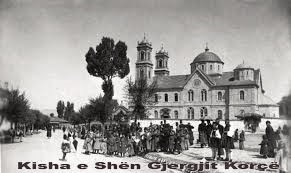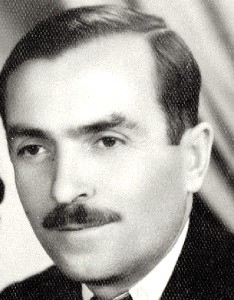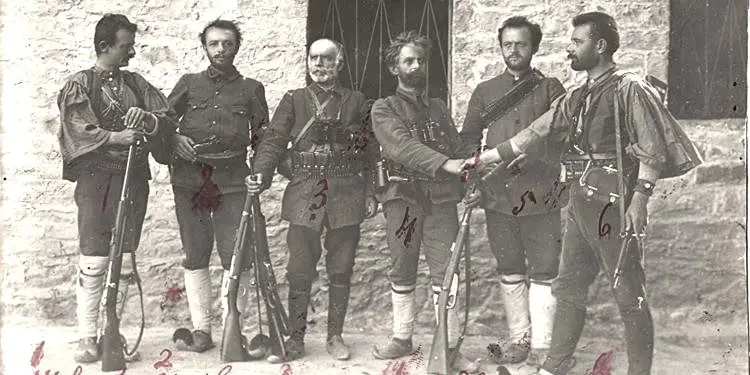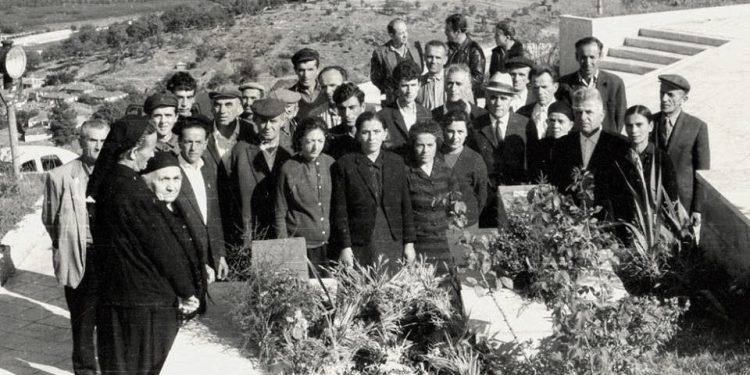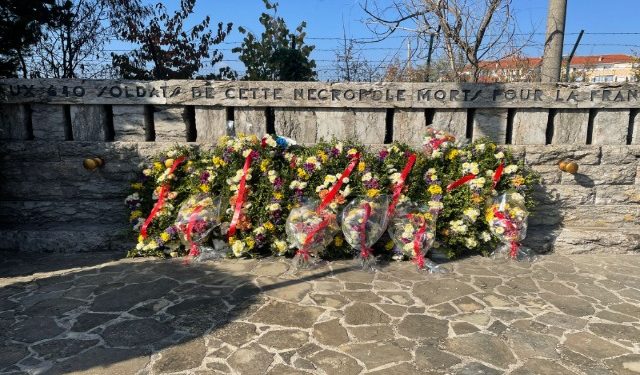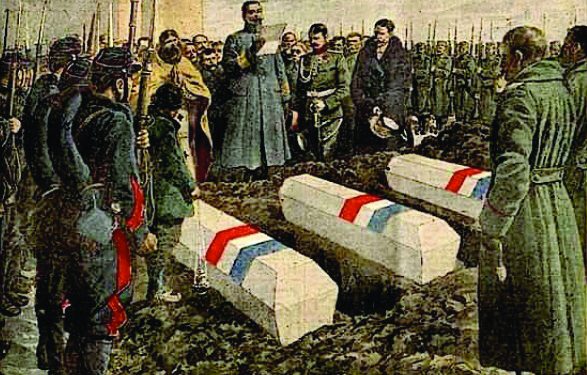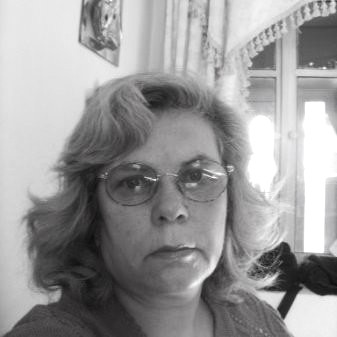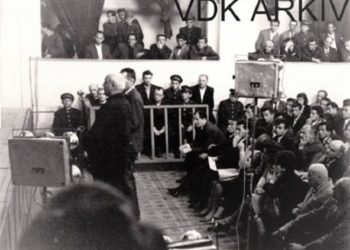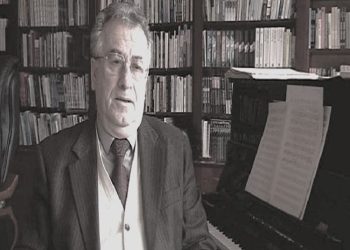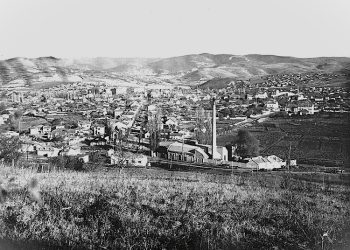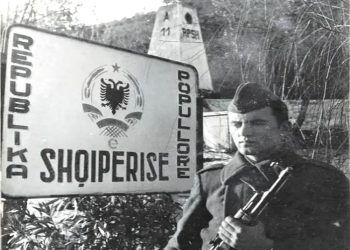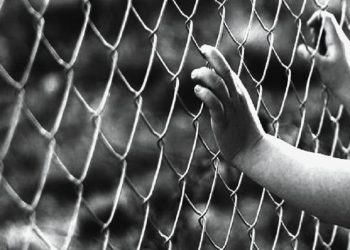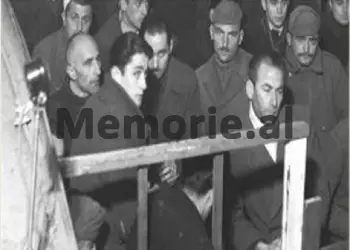By Jorgjeta Gjançi
-The unknown history of the city that became a shelter for 640 French soldiers killed in the Balkans-
Memorie.al / Korça, the noble heart of traditions and its inhabitants, is at the same time the only city in the Balkans and Europe, which has provided an eternal resting place for hundreds of French sons killed in the wars of the last century. There are not a few, but full 640 graves of French soldiers, which for 90 years have been found, preserved and are under the care of generations of its noble inhabitants. “The French sons killed in the Balkans, in the war for the interests of the politics of the time, unlike many neighboring cities and states, Korça of culture, were offered a part of their body (land), without any reward, they were offered care and respect , then today and in the future”, – affirms the 84-year-old Korčar, Lefter Pepo.
90 years ago
The Second World War was at its peak, especially in the Balkans, which historically has been the epicenter of armed clashes between neighbors, but also a battlefield with implications and interests of the various states of old Europe. According to the historical documents of the time, hundreds of soldiers of the French forces were killed in the Balkan Peninsula, who undoubtedly defended and fought for the interests of their country…! Not a few of them, according to the archives of the time, were also killed in Korça.
The French government showed great care for its martyrs, even though it was a war. She decided to group them in one place and when the war was over, to draw them to her place. Having a cooperative relationship with the priory of Korça and the leaders of the patriotic movement of the time, the French military command thought to create the cemetery of the soldiers killed in Korça.
The provincial council, which at that time administered the Autonomous Province of Korça, according to the documents stored in the Korçë museum, donated the land where the cemetery of French soldiers who died in the First World War would be built. This plot was located in the north of the city. During the years of the ongoing war, the French brought to eternal rest in the cemetery on the outskirts of Korca, all their fallen soldiers on the Balkan Peninsula.
Their number reached 640 people. Not all of them were of French nationality, as France mobilized soldiers during the years of this war, even from the countries that were its colonies. Consequently, in these cemeteries there are soldiers of French, Italian, Moroccan, Algerian, Korean and even Vietnamese nationality, etc.
The story in the mouth of 84-year-old Lefter Pepo
The elderly, but also generations later, not only know the history of the creation of the French cemetery in their city, but are proud that they were the only ones in the Balkans who opened eternal shelter to the 640 French sons killed in a war , whose mission, they could not learn alive. One of them very informed and familiar with the historical documents of the time, is the 84-year-old Lefter Pepo.
He explains historical facts in detail, presenting documents and testimonies about the cemetery of French soldiers in Korça, with surprising accuracy. As he claims, France is the country of Western Europe that Korça has known since the 13th century and had contacts with. According to Lefter, from 1250 to 1350, there were several French ducal families in Albania. In the city of Korca, there are written documents that prove that in the 19th century, ten young people from Korca finished their higher studies at Sarbonne in Paris.
“Among them there was also a girl, who was the daughter of the prominent education-loving Kuneshka family, from Boboshtica in Korça”, 84-year-old Pepo proudly affirms. This fact, according to him, was one of the factors that helped create a growing image of the “big world” that France represented in the southeastern city. While on October 25, 1917, with the opening of the French High School, which in 1922 was called the Albanian National High School, these ties was further strengthened.
The French in the Balkans and in Korça
The Declaration of Independence on November 28, 1912, was a very big event for the entire Albanian people. In 1913, the great European powers, in accordance with the Treaty of London, determined the state borders of our country. In the circumstances that arose, the Greeks were forced to retreat to their land, as Prince Vidi came to rule the country. In 1914, the First World War broke out. The Greeks, having greed for Albanian territories in the south and southeast of the country, returned again and conquered Korça.
The beginning of the First World War created two groups, the military blocs of this war: on the one hand, the central bloc, which included Germany, Austria-Hungary, and Bulgaria joined them, while on the other, the Entente bloc was; France, England, Italy and the USA. In 1915, in the Battle of Manastir in Macedonia, the armies of two military blocs clashed and from this battle, the Austro-Hungarians and the Bulgarians who were stationed at that time in Macedonia and in the Pogradec region were the losers, while the French military forces came out victorious and Italian.
With the fall of the Monastery, changes also took place in Korça, which depended on the Monastery. In this city, the forces of the French army entered as conquerors, who found the Greek conquerors.
As a result, Korça was occupied by the Greeks and the French, so the popular movement began to reorganize more strongly than before. On the initiative of the Korça party and the insurgents led by Themistokli Gërmenji, on December 10, 1916, an agreement was made and a treaty was signed with the French military command.
According to this agreement, a cease-fire was established with the French army and the beginning of cooperation with the French with two main conditions: To leave the forces of the occupying Greek army from Korça and to declare the Autonomous Province of Korça. This agreement was implemented; the invading Greek military forces left Korça.
Escape of the French
The French military command, according to the documents of the time, stayed in Korça until May 1920. The war was over. The military command that had operated in Korça, expressed its readiness to retrieve the remains of the soldiers killed in the war. Again, the leaders of Korça citizens said: “They are really soldiers of France, but the people of Korça honor their memory, because during the War they became our collaborators and helpers, so let them rest here”!
The French government approved this request. The crosses of these graves, years later, were brought from Thessaloniki. These crosses are still there today, even though they have been placed for about 80 years. “The cemetery of French soldiers in Korça have been is and will be a bouquet of flowers that never withers. They have never been moved, even though our city and country have gone through heavy rains, care for this cemetery from generation to generation has never been lacking”, says Lefter Pepo
Fodulli: “I defended the cemetery with weapons in 1997”!
The caretaker of the French graves in Korça was Demir Kamenica, while other generations served in them afterwards. During the riots of March 1997, Seferi took a machine gun and with it in his hand, he stayed at the cemetery at night. “I kept them because there were bad people who could come and take the marble crosses, pull out the railings, damage their flowers and orchards.”
In the years of democracy, Seferi raised two spears for the flags and again began to raise the French and Albanian flags next to them every morning. Then he started work with the concern that every cemetery’s crypt would laugh and bloom. There you could find all kinds of flowers. In recent years, he kept his son, Alfredi, by his side, to which he taught the gardener’s trade.
Generations of caregivers
The cemetery has always been under the care of the local government of the city. After Demir, – continued Pepo, – Areto Sotiri from Bahçevan served in them and after him, Demir’s grandson, Sefer Fodulli. The latter started working as a young man and left when he retired. Now he is about 75 years old. In his house, he keeps a French flag as a rare relic.
Seferi served at this cemetery during a difficult time, when the State Security controlled every area of the country. “I worked every day so that the flowers of that cemetery would never wither, that the roses would bloom without rain, that the carnations of all colors would release their fragrance until now. When the city was sleeping, around midnight, I would go and water the flowers, because that was the most suitable time.
The State Security officers dictated to me and kept me from doing bad things at night. When they were convinced that it was a care for the flowers, they advised me not to go out at night again, lest something should happen to me. I had nothing to do, I obeyed. In the years of monism, no one except me set foot in those cemeteries.
On November 11, on the Day of Remembrance of the Fallen of France, the French ambassador came with his wife; they laid flowers at the memorial, paid their respects and left in silence. All around, the officers of the State Security were eavesdropping, lest I say anything to them, lest they give me anything. In order not to have trouble, I stayed away”, he says. Memorie.al




